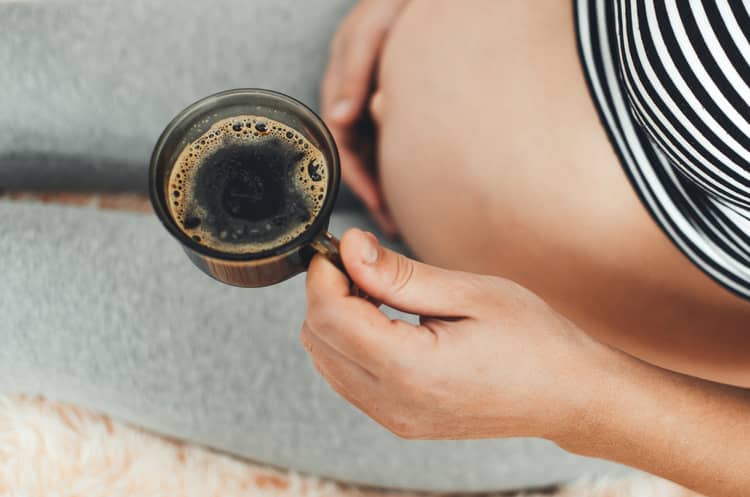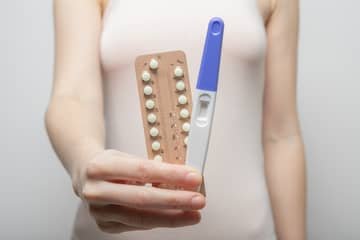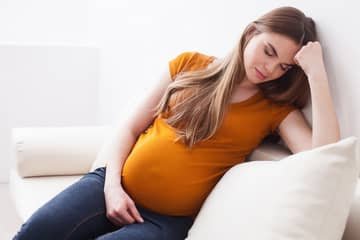
Coffee in pregnancy. Classic or decaffeinated breakfast melta?
Some expectant mothers avoid coffee and have eliminated it immediately after a positive pregnancy test. Others enjoy it even during pregnancy without it having any effect on their health or the health of the baby.
Once upon a time, coffee was strictly forbidden during pregnancy, today it is no longer clearly forbidden to drink it. Is classic coffee suitable during pregnancy or should you prefer the decaffeinated version? Would you rather choose substitutes like Melta, Caro, chicory or breakfast coffee?
Coffee in pregnancy
Coffee lovers in particular are horrified by the idea that they will have to eliminate the caffeinated drink from their diet for several months. It is not surprising that the opinions of experts on the harmfulness of caffeine during pregnancy differ - some recommend eliminating it completely, others recommend only limiting it. In 2019, the World Health Organization (WHO) declared a safe daily dose of caffeine during pregnancy up to 300 mg, the American Association of Obstetricians and Gynecologists (ACOG) claims that the safe daily dose is 200 mg of caffeine.
Caffeine in pregnancy
Of course, you don't need to overdo it with caffeine during pregnancy, but you don't have to avoid it completely. One or two cups of coffee won't hurt you or your baby. Some mothers-to-be have low blood pressure during pregnancy, which is why 1-2 cups of coffee a day are also recommended by doctors. Even if your pregnancy is going well, you don't have to blame yourself for drinking coffee. It is only important to guard your daily intake of caffeine.
Caffeine is not only found in coffee, but also in black and green tea, energy drinks and chocolate. The amount of caffeine in coffee varies according to the type of coffee, but also according to its preparation. For example there are 30-50 mg in espresso (300 ml cup), 63 mg in instant coffee (240 ml cup), and 95-165 mg in drip coffee. You will find 25-48 mg of caffeine in loose black tea (240 ml cup) and 25-60 mg of caffeine in the same amount of green tea. If you like cola, you will receive 24-46 mg of caffeine in one 240 ml glass (depending on the chosen cola drink), 28-87 mg in 250 ml of energy drink and 11-71 mg of caffeine in a classic 100-gram chocolate bar. A small amount of caffeine is usually also present in decaffeinated versions of the drink (decaffeinated instant coffee contains 2 mg, decaffeinated black tea 2-5 mg, decaffeinated espresso 0 mg).

What coffee during pregnancy?
Are you thinking about whether ground or instant coffee is more suitable for you? Real coffee drinkers do not consider instant coffee to be real coffee and do not recommend drinking it. Instant coffee is popular for its quick preparation, longer shelf life and lower weight, but the problem is that the consumer does not know exactly what kind of coffee he is drinking, it is not clear what its origin, variety, processing, etc. are.
Instant coffee must undergo a process of instantization (dehydration). Either by lyophilization (freeze drying) or by spray drying. The second method is more widely used because it is faster and cheaper, but it results in the loss of a lot of aromatic substances and caffeine. Manufacturers replace the loss with compounds, so instant coffee cannot be considered a natural product.
Coffee is not like coffee, if you want to drink coffee even during pregnancy, you should choose ground coffee over soluble coffee, the best choice is coffee beans with the best aroma and without a large amount of additives. You quickly grind it and prepare it (if not in an automatic or lever coffee maker, then in a cheaper mocha or French press coffee maker).
Decaffeinated coffee during pregnancy
Caffeine- free variants are a suitable choice not only for women who suffer from high blood pressure during pregnancy, but also for women who want to avoid caffeine during pregnancy. Instant, ground and decaffeinated coffee beans are available. If you choose high-quality ground or bean decaffeinated coffee, you won't even notice the difference in taste. With such coffee, you can prepare all your favorite drinks without having to worry about changing the taste and consistency of the drink.

Melta, Caro, breakfast or chicory coffee during pregnancy
If you don't want to give up coffee during pregnancy, but you want to avoid classic coffee and you don't like Decaf versions, you can choose various other substitutes. The most popular is cereal coffee, also known as melta or inka. With regular consumption, it has a positive effect on digestion. The wheat soluble drink Caro, which is popular for its mild taste, is also suitable during pregnancy. Chicory coffee, popularly called cigorka, also has an excellent effect on health. Instead of kalsicka, you can treat yourself to breakfast coffee. We recommend consuming this instant coffee drink in moderation, as it contains a lot of glucose syrup, sugar and coconut fat. However, all substitutes are permitted and safe during pregnancy.
Coffee during pregnancy - experience
Even in discussions, women agreed that coffee during pregnancy is suitable. They were even advised by a doctor, of course, in a smaller amount than before pregnancy, i.e. 1 to 2 cups a day. In the case of potted coffee, it is advisable to give only one instead of 2 teaspoons of ground coffee. Some mothers-to-be drank breakfast coffee, Caro or Melta during pregnancy. It happened to several people that they didn't like coffee, even though they were addicted to it before, so they chose its substitute or the Defac version instead.
The most frequent questions - FAQ
Coffee is suitable during pregnancy, but in smaller quantities. How much can you indulge in during pregnancy? Is decaffeinated coffee suitable during pregnancy and what are the substitutes for coffee? We tried to answer all important questions in the article, if you have any other questions, we will be glad if you join the discussion. You can help other mothers-to-be with your experience.
How much coffee can I drink per day during pregnancy?
Can Caffeine Cause Miscarriage?
Can I consume caffeine while breastfeeding?
Is coffee or tea more suitable during pregnancy?
Pridať komentár





